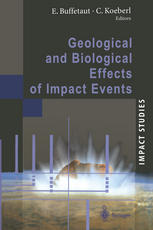

Most ebook files are in PDF format, so you can easily read them using various software such as Foxit Reader or directly on the Google Chrome browser.
Some ebook files are released by publishers in other formats such as .awz, .mobi, .epub, .fb2, etc. You may need to install specific software to read these formats on mobile/PC, such as Calibre.
Please read the tutorial at this link: https://ebookbell.com/faq
We offer FREE conversion to the popular formats you request; however, this may take some time. Therefore, right after payment, please email us, and we will try to provide the service as quickly as possible.
For some exceptional file formats or broken links (if any), please refrain from opening any disputes. Instead, email us first, and we will try to assist within a maximum of 6 hours.
EbookBell Team

4.4
42 reviewsThis book is the first volume of a new interdisciplinary series on "Impact Studies". The volumes of this series aim to include all aspects of research related to impact cratering - geology, geophysics, paleontology, geochemistry, mineralogy, petrology, planetolgy, etc. Future volumes will include monographs, field guides, conference proceedings, etc. All contributions in this book were peer-reviewed to ensure high scientific quality. The thirteen papers in the present volume result from a workshop of the European Science Foundation (ESF) IMPACT programme ("Response of the Earth System to Impact Processes"). This programme is an interdisciplinary effort aimed at understanding impact processes and their effects on the Earth System, including environmental, biological, and geological changes, and consequences for the biodiversity of ecosystems. The goals of the programme, and details about our activities, can be found on the web at . The IMPACT programme has currently 15 member nations from allover Europe. The activities of the programme range from workshops to specific topics regarding impact cratering, short courses on impact stratigraphy, shock metamorphism, etc. , mobility grants for students and young researchers, development of teaching aids, and publications. The third IMPACT workshop was held in Quillan, in the foothills of the French Pyrenees, in September 1999.